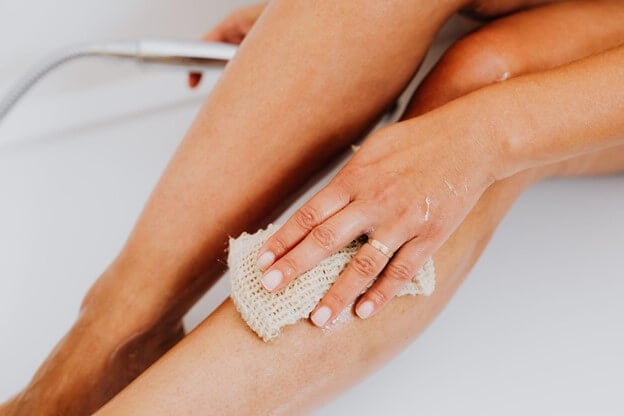
Have you considered various hair removal methods that yield results similar to waxing, yet avoid the use of wax? One of the most notable techniques you likely encountered is epilation. However, many users find themselves dealing with the frustrating issue of ingrown hairs regardless of how they utilize the device.
In fact, epilation is one of the primary culprits behind the occurrence of ingrown hairs. So, is there a way to prevent these troublesome ingrown hairs caused by epilators? Or are you destined to discard your pricey device? In this article, we will delve into the reasons behind ingrown hairs associated with epilation and provide you with strategies to prevent them.
Understanding Epilators and Their Mechanism
An epilator is an electric tool that can operate on batteries or be plugged into a power source. It features small tweezers designed to grasp unwanted hair and pull it out from the roots. The design of the tweezers can vary; they may be rotatable, disc-shaped, or spring-like.
Some epilators are suitable solely for dry skin, while others can be used for both dry and wet epilation. Additionally, you will find that some models are equipped with a single head, whereas others offer multiple attachments tailored for different areas of the body.
Moreover, the regrowth period for hair after epilation typically spans 2 to 4 weeks, making it comparable to the results of waxing. However, unlike waxing, which also exfoliates dead skin cells, the epilator functions primarily on the skin’s surface and does not interact with the epidermal cells.
Do Epilators Lead to Ingrown Hairs?
Ingrown hairspermanent scarring
Similar to other hair removal techniques such as shaving or waxing, epilation can also cause ingrown hairs. This issue often arises when an epilator is not used correctly or when the skin is inadequately prepared prior to epilation.
How Epilators Contribute to Ingrown Hairs
Two primary factors contribute to the formation of ingrown hairs following epilation: hair breakage during the removal process and the blockage of hair follicles.
Hair Breakage
When the epilator successfully removes hair from the roots, the hair typically regrows smoothly. However, if the hair breaks midway through its length instead of being extracted entirely, it can regrow more quickly and become trapped beneath the skin.
Several factors can cause hair breakage, including:
Follicle Blockage
The skin is a dynamic organ that constantly undergoes cellular renewal, with dead cells being replaced by new ones. However, if dead skin cells accumulate, they can hinder the natural exfoliation process and clog hair follicles.
In such cases, hair cannot break free from the skin and tends to grow inward, resulting in ingrown hairs.
Post-Care for Ingrown Hairs
Now that you understand the reasons behind the frequent occurrence of ingrown hairs following epilation, let’s explore how to address them after using an epilator.
Let Them Be
As the hair continues to grow, it’s often best to simply leave the ingrown hairs alone. Within a few days, they may emerge from the skin on their own. During this healing time, avoid epilation, waxing, or shaving in the affected area.
Extract Them
However, if the ingrown hairs are bothersome or at risk of infection, consider removing them gently one by one. You can use sterilized needles, tweezers, or clippers to extract the hair as it becomes visible beneath the skin. If any infection has developed, be sure to apply a topical antibiotic ointment.
Clean the Affected Area

Maintaining cleanliness in the affected area is crucial in aftercare for ingrown hairs. Gently exfoliate the area using a soft washcloth or a toothbrush with soft bristles, dampened with warm water, and rub in circular motions.
Preventing Ingrown Hairs
While treating ingrown hairs after using an epilator is possible, it’s not an ideal routine, as it can be cumbersome and may lead to long-term scarring or skin discoloration. Therefore, the most effective approach is to prevent ingrown hairs altogether.
Here are some practical tips for using an epilator without incurring ingrown hairs:
Invest in a Quality Device
An epilator with dull blades or a limited number of trimmers is more prone to causing ingrown hairs. Thus, it is wise to select a high-quality epilator that is in good working order to eliminate both unwanted hair and the risk of ingrown hairs.
Trim Hair First
If the hair is excessively long, consider trimming it down to one-third or one-quarter of its length. This ensures that the tweezers can grasp the hair effectively from the roots rather than pulling it out partway.
Exfoliate Properly

Accumulated dead skin cellsthorough skin exfoliation
Moisturize Your Skin
Exfoliation can leave the skin dry, heightening the likelihood of irritation post-epilation. To combat this, ensure that you adequately moisturize your skin after hair removal. Opt for a non-comedogenic moisturizer to prevent clogging your pores and aggravating the situation.
Incorporate Salicylic Acid
Finally, consider using products containing salicylic acid, such as serums or creams, to enhance skin smoothness and glow. Salicylic acid aids in removing dead skin cells and clearing clogged pores and hair follicles, effectively reducing the likelihood of ingrown hairs.
Long-Term Ingrown Hair Prevention
While you can take steps to minimize ingrown hairs during epilation, this may not serve as a comprehensive long-term solution




































